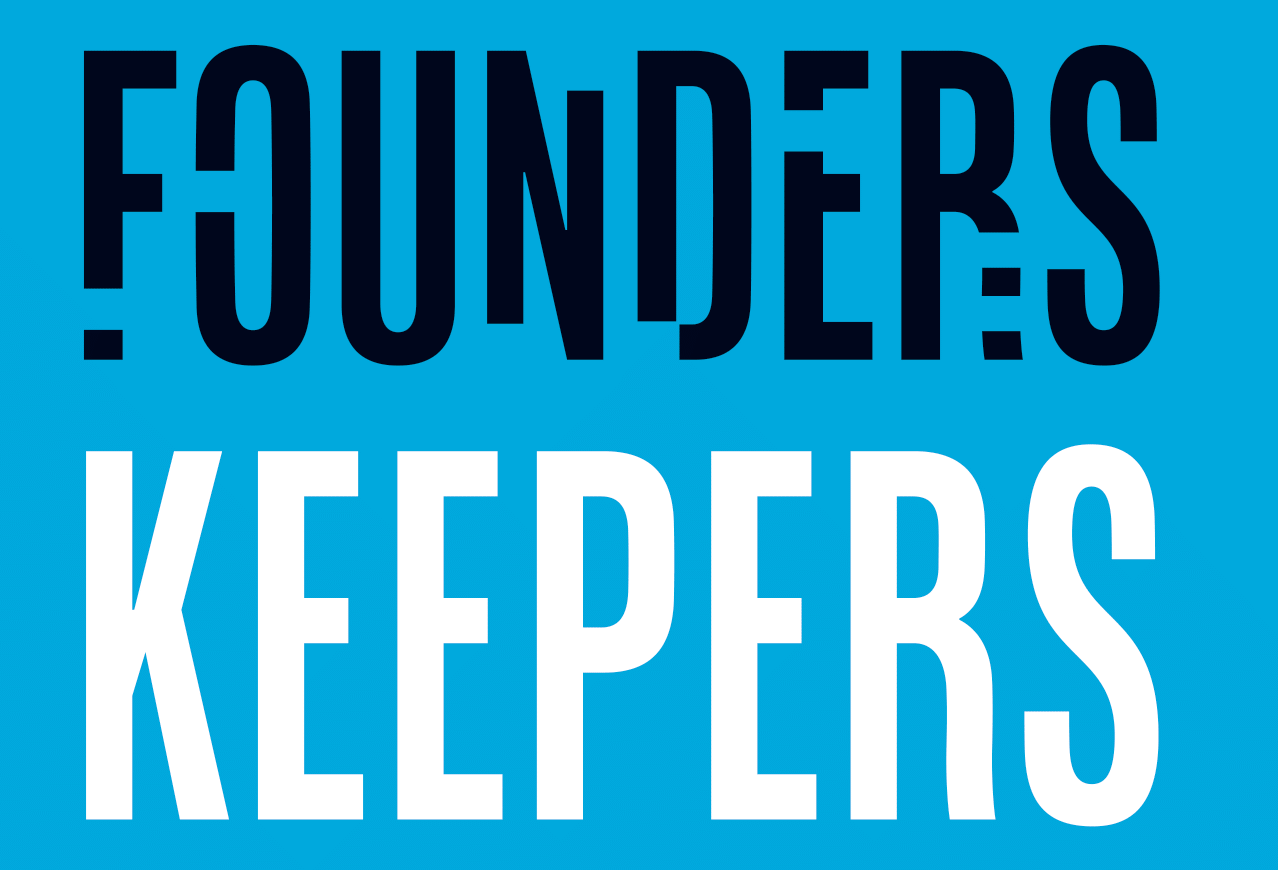Article
The Siren Call of Authoritarian Leaders: A Cautionary Tale
January 17, 2025

Look around: the world feels chaotic. You’re grappling with uncertainty, economic struggles, and a sense that the system you’ve relied on is cracking at its foundation. You’re not alone in feeling this way. Millions share your frustration and along comes someone who seems to have all the answers. They speak with confidence and charisma, cutting through the noise with promises of security, strength, and a brighter future. They tell you, “I will fix everything. Just trust me.” Sound familiar?
This is the allure of the authoritarian leader—a figure who rises to power by exploiting fear and uncertainty, offering solutions that seem simple and reassuring but often come at a steep cost. History is littered with examples of such leaders, from the tyrants of ancient empires to modern-day strongmen. They all share strikingly similar traits and tactics, and the story of their rise and the havoc they wreak—serves as a cautionary tale for us all.
How to Spot an Authoritarian Leader
Authoritarian leaders don’t wear a label announcing their intentions. Instead, they present themselves as saviors in troubled times. Here are some telltale signs to watch for:
Sounds appealing? That’s the trap. What starts as admiration can quickly turn into blind allegiance, and before you know it, you’re complicit in empowering someone who might not have your best interests at heart.
The Toolbox of Manipulation
How do authoritarian leaders pull this off? Their playbook is both time-tested and chillingly effective. Here’s how they manipulate and appeal to people:
Emotional Manipulation
They know how to tug at your heartstrings—and your fears. A cornerstone of their strategy is fearmongering. They’ll highlight threats, exaggerate dangers, and convince you that the world is on the brink of disaster. “Without me,” they say, “you’ll be lost.” But they don’t stop at fear. They also dangle hope. Grand promises of prosperity, strength, and security make it easy to ignore the finer details—or lack thereof.
Simplifying Complexity
Ever been frustrated by how complicated the world seems? Authoritarian leaders offer relief. They boil everything down into simplistic terms: “Here’s the problem, and here’s the solution.” Of course, their solutions often ignore reality or trample over ethical considerations, but that’s easy to miss when you’re desperate for answers.
Propaganda and Censorship
Control the narrative, and you control the people. These leaders master propaganda, using state media, social platforms, and misinformation to shape public perception. Dissenting voices are silenced, creating an echo chamber where only their truth exists.
Scapegoating and Division
When things go wrong, they’ll point fingers elsewhere. Immigrants, minorities, opposing political groups, or even entire countries become convenient scapegoats. This tactic redirects your frustration away from the leader and toward a common enemy.
Rewarding Loyalty
They’re experts at creating dependency. Loyal followers are rewarded with perks, jobs, or financial incentives. This reinforces a system where loyalty isn’t just encouraged; it’s mandatory.
Why Do People Follow Them?
Here’s the million-dollar question: if authoritarian leaders are so dangerous, why do people fall for their tricks? The answer lies in psychology, sociology, and political dynamics.
Psychological Factors
Sociological Factors
Political Factors
The Danger of Blind Loyalty
Following an authoritarian leader might feel comforting at first, but history shows us where it often leads:
How to Resist the Siren Call
Recognizing the signs of authoritarianism is the first step to resisting it. Here’s what you can do:
Conclusion: The Cost of Complacency
The allure of an authoritarian leader is powerful, especially in times of uncertainty. But history’s cautionary tales remind us that the price of blind loyalty is often steep. It’s not just your freedoms that are at risk but your morality, your society, and your future.
So, the next time someone promises to solve all your problems with a wave of their hand, take a moment to pause. Ask yourself: what are they really offering, and at what cost? The answer could mean the difference between a brighter future and a darker path. Stay vigilant, stay informed, and never stop questioning.
This is the allure of the authoritarian leader—a figure who rises to power by exploiting fear and uncertainty, offering solutions that seem simple and reassuring but often come at a steep cost. History is littered with examples of such leaders, from the tyrants of ancient empires to modern-day strongmen. They all share strikingly similar traits and tactics, and the story of their rise and the havoc they wreak—serves as a cautionary tale for us all.
How to Spot an Authoritarian Leader
Authoritarian leaders don’t wear a label announcing their intentions. Instead, they present themselves as saviors in troubled times. Here are some telltale signs to watch for:
- Power Grabbers: These leaders thrive on centralizing power. They bypass checks and balances, dismiss dissenting voices, and make decisions unilaterally. They’ll tell you it’s for the greater good, but it’s really about control.
- Charismatic Rhetoric: They’re often spellbinding speakers who tap into your emotions. They promise simple solutions to complex problems and use repetitive messaging to hammer their points home.
- Fear Merchants: Fear is their currency. They amplify threats—real or imagined—to make you feel vulnerable. They’ll tell you that only they can protect you from “them” (whoever “them” might be).
- Polarizers: Authoritarian leaders thrive on division. They’ll frame the world in black and white: us versus them, good versus evil. This creates a loyal in-group while vilifying an out-group.
- Cult of Personality: They carefully craft an image of invincibility, wisdom, or moral superiority. You’re not just following a leader; you’re following a larger-than-life figure who seems destined to lead.
Sounds appealing? That’s the trap. What starts as admiration can quickly turn into blind allegiance, and before you know it, you’re complicit in empowering someone who might not have your best interests at heart.
The Toolbox of Manipulation
How do authoritarian leaders pull this off? Their playbook is both time-tested and chillingly effective. Here’s how they manipulate and appeal to people:
Emotional Manipulation
They know how to tug at your heartstrings—and your fears. A cornerstone of their strategy is fearmongering. They’ll highlight threats, exaggerate dangers, and convince you that the world is on the brink of disaster. “Without me,” they say, “you’ll be lost.” But they don’t stop at fear. They also dangle hope. Grand promises of prosperity, strength, and security make it easy to ignore the finer details—or lack thereof.
Simplifying Complexity
Ever been frustrated by how complicated the world seems? Authoritarian leaders offer relief. They boil everything down into simplistic terms: “Here’s the problem, and here’s the solution.” Of course, their solutions often ignore reality or trample over ethical considerations, but that’s easy to miss when you’re desperate for answers.
Propaganda and Censorship
Control the narrative, and you control the people. These leaders master propaganda, using state media, social platforms, and misinformation to shape public perception. Dissenting voices are silenced, creating an echo chamber where only their truth exists.
Scapegoating and Division
When things go wrong, they’ll point fingers elsewhere. Immigrants, minorities, opposing political groups, or even entire countries become convenient scapegoats. This tactic redirects your frustration away from the leader and toward a common enemy.
Rewarding Loyalty
They’re experts at creating dependency. Loyal followers are rewarded with perks, jobs, or financial incentives. This reinforces a system where loyalty isn’t just encouraged; it’s mandatory.
Why Do People Follow Them?
Here’s the million-dollar question: if authoritarian leaders are so dangerous, why do people fall for their tricks? The answer lies in psychology, sociology, and political dynamics.
Psychological Factors
- The Authoritarian Personality: Some people are naturally drawn to authority. They value order, hierarchy, and tradition, and they’re more likely to submit to strong leaders who promise to uphold these values.
- Fear and Uncertainty: In times of crisis, fear takes over. People crave stability and security, making them more susceptible to leaders who promise to restore order.
- Need for Simplicity: Not everyone enjoys grappling with ambiguity. Many prefer simple, definitive answers, even if they’re not accurate.
Sociological Factors
- Group Identity: Authoritarian leaders often appeal to a shared sense of identity, whether it’s national, cultural, or religious. By protecting this identity, they gain loyalty.
- Economic and Social Inequality: Inequality breeds resentment. People who feel left behind are more likely to embrace leaders who claim they’ll “level the playing field.”
- Distrust in Institutions: When traditional systems like government or media lose credibility, people look for alternatives. Authoritarian leaders exploit this vacuum.
Political Factors
- Crisis Situations: Emergencies like wars, pandemics, or economic recessions create fertile ground for authoritarianism. In such moments, decisive action—even if it’s authoritarian—feels appealing.
- Polarization: In divided societies, people become entrenched in their views. Authoritarian leaders use this division to consolidate power, presenting themselves as the only solution.
The Danger of Blind Loyalty
Following an authoritarian leader might feel comforting at first, but history shows us where it often leads:
- Loss of Freedom: Authoritarian regimes suppress dissent, restrict free speech, and erode democratic institutions. You might find yourself living in a world where you can’t speak your mind.
- Erosion of Morality: Scapegoating and division lead to dehumanization. You may start justifying or even participating in actions you once considered unthinkable.
- Inefficiency and Corruption: Concentrating power in one person often leads to poor decision-making, cronyism, and corruption.
- Conflict and Violence: Polarization can escalate into outright violence, whether through civil unrest or external wars initiated by the regime.
How to Resist the Siren Call
Recognizing the signs of authoritarianism is the first step to resisting it. Here’s what you can do:
- Stay Informed: Seek out diverse sources of information. Don’t rely solely on what one leader or group tells you.
- Question Simple Answers: Be wary of anyone who claims to have all the answers. The world is complex, and solutions usually are too.
- Engage in Dialogue: Talk to people with different viewpoints. Polarization thrives on isolation; dialogue fosters understanding.
- Support Institutions: Strengthen the democratic systems that keep authoritarianism in check, such as free press, independent courts, and fair elections.
- Recognize Fear Tactics: When someone tries to manipulate you with fear, take a step back and analyze the situation logically.
Conclusion: The Cost of Complacency
The allure of an authoritarian leader is powerful, especially in times of uncertainty. But history’s cautionary tales remind us that the price of blind loyalty is often steep. It’s not just your freedoms that are at risk but your morality, your society, and your future.
So, the next time someone promises to solve all your problems with a wave of their hand, take a moment to pause. Ask yourself: what are they really offering, and at what cost? The answer could mean the difference between a brighter future and a darker path. Stay vigilant, stay informed, and never stop questioning.
share this
Related Articles
Related Articles

The Leadership Tightrope If you lead long enough, you start to realize something uncomfortable: everything that makes you effective also threatens to undo you. Your drive becomes impatience. Your confidence becomes stubbornness. Your empathy turns into guilt. The longer you lead, the more you realize that the job isn’t about choosing one trait over another — it’s about learning to carry both. That’s what maturity looks like in leadership. It’s not balance. It’s tension well managed. The False Comfort of Either/Or Most leaders crave clarity. We want rules. Playbooks. Certainty. Should I be tough or kind? Decisive or collaborative? Visionary or practical? The insecure part of the brain hates contradiction. It wants the “right answer.” But leadership lives in the messy middle — the place where both truths exist, and neither feels comfortable. The best leaders aren’t either/or thinkers. They’re both/and navigators. A Story from the Field I once coached a CEO who told me, “I’m torn between holding people accountable and being empathetic.” I said, “Why do you think those are opposites?” He paused, then laughed. “Because it’s easier that way.” Exactly. It’s easier to pick a lane than to learn how to drive in two at once. He eventually realized the real question wasn’t which side to choose, but when and how to lean into each. He became known as “the fairest tough boss in the building.” That’s the magic of integration — toughness with tenderness, vision with realism, clarity with compassion. Why Paradox Feels So Hard Contradictions feel like hypocrisy when you haven’t made peace with your own complexity. If you believe you have to be one consistent version of yourself — confident, decisive, inspiring — then every moment of doubt feels like fraud. But the truth is, great leaders are contradictory because humans are contradictory. You can be grounded and ambitious, humble and proud, certain and still learning. The work is not to eliminate the tension — it’s to get comfortable feeling it. The Psychology Behind It Our brains love binaries because they make the world simple. But complexity — holding opposites — is the mark of advanced thinking. Psychologists call this integrative complexity — the ability to see multiple perspectives and blend them into a coherent approach. It’s not compromise; it’s synthesis. It’s saying, “Both are true, and I can move between them without losing my integrity.” That’s where wisdom lives — in the movement, not the answer. Funny But True A client once told me, “I feel like half monk, half gladiator.” I said, “Congratulations. That means you’re leading.” Because that’s what the job demands: peace and fight, compassion and steel. If you can’t hold both, you end up overusing one until it breaks you. The Cost of One-Dimensional Leadership We’ve all worked for the “results-only” leader — brilliant, efficient, and emotionally tone-deaf. And the “people-first” leader — kind, loyal, and allergic to accountability. Both are exhausting. Both create lopsided cultures. When leaders pick a single identity — visionary, disciplinarian, nurturer, driver — they lose range. They become caricatures of their strengths. True greatness comes from emotional range, not purity. The Paradox Mindset Here’s how integrative leaders think differently: They value principles over preferences. They can be decisive without being defensive. They know empathy isn’t weakness and toughness isn’t cruelty. They trade perfection for adaptability. They’re the ones who can zoom in and out — from the numbers to the people, from the details to the meaning — without losing coherence. They’re not consistent in behavior. They’re consistent in values. That’s the difference. How to Practice Both/And Thinking Spot your overused strength. The strength that’s hurting you most is the one you lean on too much. If you’re decisive, try listening longer. If you’re compassionate, try being direct faster. Ask, “What’s the opposite quality trying to teach me?” Impatience teaches urgency; patience teaches perspective. You need both. Invite your opposite. Bring someone onto your team who balances your extremes — not a mirror, a counterweight. Hold paradox out loud. Tell your team, “This decision has tension in it — and that’s okay.” Modeling that normalizes complexity for everyone else. A Moment of Self-Honesty I’ve spent decades watching leaders chase “clarity” like it’s peace. But peace doesn’t come from eliminating tension. It comes from trusting yourself inside it. Once you accept that leadership will always feel contradictory, you stop fighting it — and start flowing with it. You don’t need to be the calmest, toughest, or most visionary person in the room. You just need to be the one who can stay whole while the world pulls you in opposite directions. Your Challenge This Week When you catch yourself thinking, “Should I be X or Y?” — stop. Ask instead, “How can I be both?” Then practice it in one small moment. Be kind and firm. Bold and humble. Fast and thoughtful. That’s where growth hides — in the discomfort between two truths. Final Word The best leaders aren’t balanced. They’re integrated. They’ve stopped trying to erase their contradictions and started using them as fuel. They’ve learned that leadership isn’t about certainty. It’s about capacity — the capacity to hold complexity without losing your center. That’s not chaos. That’s mastery
STAY UP TO DATE
GET PATH'S LATEST
Receive bi-weekly updates from the church, and get a heads up on upcoming events.
Contact Us










